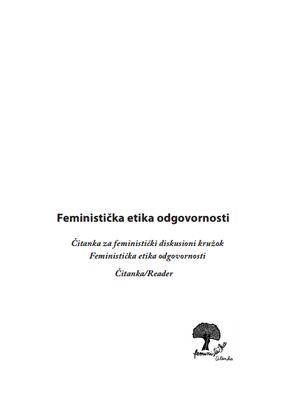

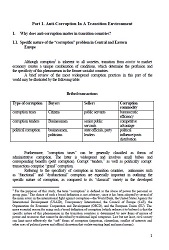
Once an "exotic" issue in the diplomatic exchanges, corruption became a constant part of the agenda of the international community in the early and mid-1990s. In recent years, corruption has evolved into one of the priority problems of transition societies. At the same time different approaches have been elaborated both to counter corruption and to take its dimensions, survey the background factors, and the multitude of meanings it has been attributed with by public opinion. In this respect the work of Coalition 2000, which combines civil society pro-active anticorruption measures and monitoring instruments, has emerged as a unique advocacy and research tool leading to practical results. The publication is divided into four major sections: 1. Anti-Corruption In A Transition Environment; 2. Implementing Anti-Corruption in Bulgaria; 3. "Clean Future" Public Awareness Campaign; 4. Local Anti-corruption Initiatives: The Coalition 2000 Local Government Transparency Program.
More...
Keywords: Serbia; social awareness; social crisis; demography; generations; regression; egalitarism; ethnicity; mind-set; history; interpretation; west; manipulation; transition; political crisis; recession; NATO; Kosovo; civic alliance;
(English edition) This report contains the analysis of data collected during the month of October 1999. One should have in mind this time frame-when considering the findings, drawing different generalizations or setting guidelines for possible actions. Sets of values of members of the observed generation, their social awareness, perception of the past and present, their stance on the West, and above all their potential to bring about changes are essentially determined by some long-standing and less intensive structural factors. To put it simply a generation of people who today have between 25 and 35 years, and who represent the future of the country, was to a large extent formed under the influence of structural features of the society eroded by constant wars and war threats, protracted economic crisis, internal conflicts and strife and total confusion in the sphere of social awareness and public moral. The generation which in the last decade came of age in such a society per force had to reflect its essential characteristics, despite a relative autonomy which each age groups had as its inherent characteristic. Young people and even relatively young people, to which the respondents of this survey belong, have a determined biological and psychological potential which can help them partially overcome the given moment of time and which usually indicates some of their future contents and values in the present day. In that sense one could expect that the mind-set of the observed generation substantially differs from so-called social conscience. But in conditions of an ever-deepening social crisis, in which the process of coming-of-age unfolded under pressure of retrograde, rather than progressive social factors, the aforementioned advantages of such a generation are less manifest, since their potential crumbles under pressure of a regressive society. One must bear in mind the aforementioned and thus avoid to treat unjustly the observed age group: they are expected to be the creators of the Serbian society at the beginning of the Twenty-first century, but it is pretty obvious that their social actions will be affected by a sorry legacy of the social and moral collapse. In fact they were not less predestined than the earlier generations to be unequipped for the contemporary world. They simply developed under much less favorable conditions. But this should not minimize their responsibility for the future development of society in Serbia. On the other hand such adverse development factors should be borne in mind if one truly wishes to understand the traits of this generation, instead of bluntly condemning them. My intention is not to prejudge results evidenced by this survey, but it bears mentioning that it is easier to reject the middle generation in Serbia, like Serbia proper, than to try to understand and render assistance to both.
More...
Keywords: Serbia; national program; ethnicity; multiethnicity; trials; war crimes; political ideas; conservative; duke Mihailo; Vojvodina; taxes; Slobodan Milošević;
Neville Chamberlain spoke for millions of his contemporaries when, at the height of the Munich Crisis, he lamented the prospects of going to war over ‘a faraway country’ inhabited by ‘people of whom we know nothing’. The prime minister was, of course, speaking to his fellow Britons about Czechoslovakia. But he could have just as easily used these same words to characterize the Anglo-American world’s knowledge - or concern - about the lands and peoples of the entire region between Germany and the former Soviet Union. A half century later we still know very little about what the Germans call Mitteleuropa, and even less about its history. Even today, as the world press reports recent events in the former Yugoslavia in terrible detail, it has never explained why there is such intense ethnic conflict throughout Central Europe. One tragic consequence of their ignorance has been the incessant, but incorrect allusion to "age-old hatreds" that helped desensitize America’s public and politicians to Slobodan Milošević’s carefully orchestrated campaign of ethnic genocide. We have many excuses. The region's languages are dissimilar to anything we speak. Its multiplicity of intermingled ethnic and linguistic groups challenges the most curious. It boasts no great power to attract our admiration or concern. And, it is not especially strategic or important to us. It may have been only a century ago when Bismarck warned that "the Balkans are not worth the bones of a Pomeranian grenadier", but his advice has guided the statesmen of the West for centuries. But our lack of knowledge or commitment does not mean that we have not played a major role in shaping its past, present, and - as it now seems - future. Although it is true that Central Europe has many endemic problems, the current crisis stems in great part from the West's imposition of its own values and solutions on a region about which it knows little - and cares less. Unfortunately, those in the public sector who mold and make this country’s policy have shown little interest in reading serious historical scholarship. As a result, crucial insights have been lost to the frantic schedules of journalists, who prefer to get their "historical background" from the flip clichés and breezy accounts other journalists. Nor have historical insights gained currency among politicians, who have less time and inclination to read much more than a daily news summary, the requisite opinion polls, and the occasional journalistic account. Thus President Clinton’s memorable remark at a press conference in 1995, in which he justified his belated decision to intervene militarily in Bosnia by proclaiming that he now understood the situation, having just read reporter Robert Kaplan’s Balkan Ghosts. Even those social scientists who serve as area specialists for central Europe have tended to restrict their historical background to the previous generation or two, failing to see how anything that occurred before World War II could possibly inform our understanding of the events of the last decade; hence the broad currency given to political scientist Susan Woodward’s Balkan Tragedy: Chaos and Dissolution after the Cold War, which convincingly ascribes the events of the last decade to a failure of that country’s governmental leaders and institutions, without regard to underlying, historically-informed cultural forces that might have prompted that collapse. The devaluation of history by the public, press, politicians, and social scientists presents a formidable challenge to us as historians. Surely we have a vocational interest in reminding them of our ability to discern the continuity between the past and present as an instrument for determining the likely course(s) of future developments. To this I would add a second, moral imperative to repay the tax- and tuition-paying public that sustains us by contributing to the formulation of public policy. The past decade has exposed us to the tragic alternative. In the aftermath of Srebrenica, Operation Storm and the successful NATO intervention, there has evolved a broad consensus that attributes the war, genocide and the subsequent need for costly, long-term Western intervention to our failure to learn from the lessons of history. I would suggest that part of our responsibility lies in a failure of historians to teach these lessons beyond the narrow confines of the Ivory Tower. Perhaps most remiss have been Habsburg scholars, who have failed to share what they have learned about the multiethnic experience in a "western" institutional environment that upholds the rule of law and codes of professional conduct. To Balkan and Habsburg historians alike, I say that it is not so difficult for a reasonably intelligent person to understand how we have gotten to this terrible juncture in Central Europe, or to envision where we are heading. The answers to our questions are not unteachable, just untaught. Looking over the events of the past decade, I would suggest a number of historically informed insights that bridge the gap between scholarly discourse and the lay public’s self-professed factual ignorance and conceptual confusion.
More...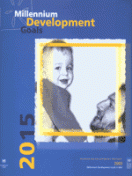
Bosnia and Herzegovina is facing a turning point. After the destruction of the 1992-1995 war and the subsequent, massive international reconstruction support, the country now finds itself at a crossroads between economic, social and political dependency on one side and the sustainability and local ownership of its development on the other. The Human Development/Millennium Development Goals Report for Bosnia and Herzegovina for the year 2003 is forward-looking and proposes policies in specific sectors that will help achieving sustainability and ownership. It also contains quantitative forecasts for the implementation of the Millennium Development Goals (MDGs) by 2015. // The MDGs are of critical importance for BiH. They provide a global context that determines previously under appreciated aspects of the globalisation process, especially with regards to poverty reduction, the humanisation of development, and the advancement of development aid. With this report and by implementing its recommendations and policies, BiH is actively joining the globalisation process, especially the activities of UN agencies and the UNDP in particular. One may argue that MDGs as such cannot be all that relevant for BiH context as the global goals have been defined too generically and detached from the present day of BiH. There also might be voices to express discontent with irrelevance of AIDS or maternal mortality, for example, in the country where these are not policy priorities. Yet, the question is - what BiH can do to prevent them from becoming issues before too late, and what real priorities the country can set in such areas as health, education and economy, outlined in MDGs. // Some statistics provide an optimistic, but perhaps misleading development picture of BiH, in light of global generic MDGs. Primary education rates stand far much higher than most of the developing countries, while maternal mortality figures are not high1. Yet, such a status quo is rather an inheritance from former socialist system. Unless the country embarks on the implementation of the mid and long-term development strategy, such achievements cannot be taken for granted forever given a current fragile economic outlook and insufficiency of public revenues. Furthermore, this report takes a look at disaggregated data to capture who are the vulnerable and neglected groups, and who would be the potential vulnerable ones, all of which should be taken into account when BiH governments and CSOs formulate development policies and implementhem in line with 8 ambitious MDGs. MDG 1 on poverty reduction seems to be a main challenge of BiH today, but it cannot be addressed in isolation of other MDGs as poverty reduction requires integrated and multisectoral approach that cannot be carried out if other MDGs are left aside. In other words, it would be myopic to formulate poverty reduction policies without taking education, health and environmental factors as relevant variables in an integrated manner. Goal 8 (on international cooperation) is also of utmost importance as it should enlighten the international community how to better address internally identified development priorities in BiH especially at a time when external financial support is on decline. // Therefore, this Human Development Report on MDGs attempts to assess problems, set priorities, and identify solutions along with BiH specific development indicators and benchmarks for all 8 goals. The report thus should enable governments and civil society organizations together to implement, monitor and evaluate country specific MDGs.
More...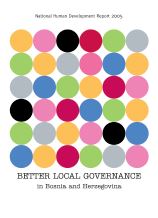
instead of an abstract here, please refer to the Introduction PDF-file
More...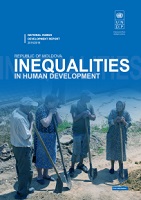
Instead of an Abstract/Summary here, please refer to the Introduction PDF-file which includes the Executive Summary. Thank You.
More...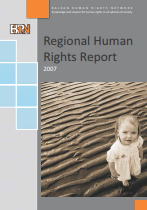
Keywords: human rights; Albania; BiH; Bulgaria; Macedonia, Montenegro; Serbia; 2007; discrimination; law; policy;
This is the third successive year in which the Balkan Human Rights Network (BHRN) prepared and published a unified report on the state of human rights in the region. All texts in this publication were prepared by authors who in each of the respective societies in the region have been consistently and persistently observing and analysing the state of human rights. They are esteemed theoreticians and activists in the field of human rights. It seems that this year the preparation and publishing of the report unfolded more smoothly and more efficiently. Among others, this is no doubt attributable also to the experience gained in previous similar activities. However, whether or not the state of human rights in countries covered by this report has also improved, and did their protection become more efficient, is for the readers to decide. We present you here just a short survey of themes contained in the presented national reports, with no intention to offer "binding instructions". Albania. - The report on the state of human rights in Albania is starting with a common judgment that, generally speaking, the government is respecting the human rights of its citizens. Nevertheless, it is noted that many institutions within the public administration are not sufficiently aware of their obligations regarding respect and protection of human rights. The authors claim that corruption, poverty, non-transparent procedures and an insufficiently developed independence of the judiciary represent major challenges facing the Albanian society. It is stressed that there is still a significant number of complaints regarding the conduct of the police, although there is certain progress in the field of procedural and substantive guaranties for a ban on abuse. Widespread child labour and exploitation of children are yet another problem noted in 2007. There was progress regarding protection of the right to education, but there are still relatively frequent examples in which this right was breached, particularly in cases of discrimination. The authors also conclude that for the time being the ombudsman remains the only institution directly assigned to promote and enhance the state of human rights. Bosnia and Herzegovina. - Authors of the report on the state of human rights in Bosnia-Herzegovina are stressing in this edition, too, the specific features of this state's constitutional arrangements and their influence upon the realization and violation of certain guaranteed rights and freedoms. The report is specifically pointing at the fact that, despite being very frequently an issue in all political and legal discussions in Bosnia-Herzegovina, the realization of the right to education and equal treatment within it has not yet produced adequate legal and substantive results. As regards access to law and justice, the report presents a survey of legal provisions and the real scope of the work of institutions dealing with the protection of human rights: the institution of the ombudsman and constitutional courts. Finally, the report paid special attention to the legal and physical situation of the discriminated and endangered groups, particularly disabled persons. Analyzed are the most important aspects of the situation related to members of this population regarding the realization of the right to work, the right to education, the right to adequate health care, social security and access to objects. Bulgaria. - The Bulgarian report starts from the fact that the year under review is also the first year of this country's full membership in the European Union. Mentioned are the basic challenges, which are important both for satisfying EU's standards and for adequate and efficient guarantees related to the respect of human rights. Among these issues particularly important are those related to suppression of corruption and of organized crime, the independence of the judiciary and the efficiency of state administration. The authors of the report hold the view that certain positive developments were achieved regarding demands for respect of provisions on equal pay for equal work, the realization of the right to go on strike in certain state institutions and sectors, and the increase of civil activism regarding environmental protection - the Ombudsman and the Commission for Protection from Discrimination. Macedonia. - According to the authors of the Macedonian report, the authorities in this state are generally respecting human rights, and the most important problems are the misuse of police competences, widespread corruption, trafficking in human beings and discrimination of ethnic minorities. In the last year Macedonia has made progress in fulfilling (political) the necessary criteria for associating with the European Union, and has entered a period of consolidation of institutions in the transition process. In 2007 there was a negligible decrease in complaints regarding violation of civil and political rights, particularly those allegedly performed by the police. On the other hand, the number of complaints regarding violation of the right to education is somewhat bigger than before, and mainly related to violation of certain rights in higher education. The report gives a detailed survey of the functioning of institutions which protect human rights, and presents the situation regarding the right to work of members of marginalized groups. Montenegro. - For the context in which human rights are implemented in Montenegro of substantial importance is the fact that during 2007 this state acquired full membership in the Council of Europe, and that in the same year the state signed the Stabilization and Association Agreement, and also got a new Constitution which implies full capacity of institutions of an independent state. However, the authors point out that the negative consequences of previous armed conflicts, and of the policies and legal instabilities which for many years were present in Montenegro, can still be felt and were not fully removed. Reminding of conclusions of institutions which follow the reform processes in Montenegro, it is stressed that major concerns are caused by a lack of genuine and efficient reform of the judiciary, by the fact that there are no efficient mechanisms for suppressing discrimination (particularly of Romas and displaced persons) and no punishment of torture, by inadequate protection of the right of access to information of public importance and by failures related to guarantees and the realization of the right of children. Serbia. - The state of human rights in Serbia were strongly influenced and frequently overshadowed by the turbulent political events. The National Assembly was inactive from October 2006 until mid-May 2007 which led to delays in the adoption of laws - the Assembly adopted only 70 or so laws by the end of 2007. Only about 20 of them were totally new and nearly all of them were merely fulfilling the formal obligations laid down in the Constitutional Act on the Implementation of the Constitution. The main problems hindering the effective enjoyment of this right lie in the absence of oversight over the implementation of the Act and in mere misdemeanour penalties for its violation. Tolerance of discrimination in practice is above all reflected in inefficient investigation, prosecution and punishment of its perpatrators and in the lack of systematic and comprehensive legislation.
More...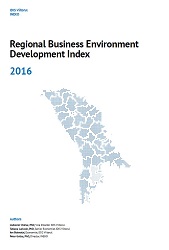
Over the last eight years, IDIS “Viitorul” has acquired a great deal of experience in strengthening the Moldovan business environment by having established the National Business Agency (NBA), granting it the needed support. The National Business Agency is an informal advocacy platform for business environment, which brings together some 35 business associations and the Chamber of Commerce and Industry around the discussion table. Lately, the NBA promoted a series of business environment priorities through the public-private dialogue. Hence, in 2015, IDIS Viitorul created the Local Business Agency with the support provided by the Chamber of Commerce and Industry, with the aim to foster economic development of regions through the involvement of business environment representatives in the decision-making process. In this way, the business environment of country districts had the opportunity to set forth its priorities at the local level to be subsequently promoted into the authorities’ public agenda through IDIS Viitorul and the Chamber of Commerce and Industry.
More...
Keywords: status of Kosovo; society; politics; Serbia; Albania; national policy; EU integration; economic development; ecology;
The edition “Moving towards a Sustainable Society in Kosovo” provides insight into the activities the Helsinki Committee for Human Rights in Serbia realized under the project of the same name. Serbia’s policymakers have managed to prolong the resolution of the Kosovo status for more than a year and thus fuel the regional vulnerability. Encouraged by Russia’s support and its embargo on the UN Security Council resolution that could have laid the foundations for Kosovo’s future status, the official Belgrade has been toughening nationalistic rhetoric and focusing on Kosovo as the top priority of the agenda of national interest. Such an attitude has turned the relations between Albanian and Serb communities in Kosovo even more delicate. For, the drawn-out status debate has overshadowed key issues of the Kosovo society, economy and interethnic relations between Albanians and Serbs and other minority communities. Two panel discussions, “Human Security in Kosovo” and “Framed Trials of Kosovo Albanians,” the Helsinki Committee organized with the assistance of partner organizations from Pristine probably best testify the need for interethnic dialogue. This edition carries integral proceedings of those gatherings. The workshops – described in this edition – one in the Serb enclave of Plemetina and another in Pristine bringing together Serb and Albanian women are also illustrative of Belgrade’s attempt to choke any rapprochement between Serbs and Albanians and of such policy’s detrimental effects on Kosovo Serbs. The rhetoric of confrontation and the emotion-fueled delusion that Kosovo would remain a part of Serbia have dominated Serbia’s political and social scene for the past twelve months. This is why this edition also brings to the public eye relevant discussions in the Serbian parliament, the text of the “Resolution on the Need for Just Solution of the Question of the Autonomous Province of Kosovo Based on International Law” that was unanimously adopted in late July 2007, as well as major Kosovo-related addresses by highest state officials. However, Serbia does have a political alternative to such mainstream: the Liberal Democratic Party /LDP/, which entered the parliament following the January 2007 elections. The LDP alternative document on Kosovo, submitted for the parliamentary consideration, is also presented in this edition. Last but not least, some illustrative commentaries, run in the Committee’s magazine The Helsinki Charter – scrutinizing Kosovo developments along with other key issues of Serbia’s modernization and Europeanization – are here available to readers as condensed reading matter.
More...


Keywords: German Democratic Republic; History of GDR; Cold War History; German division;
CONTENTS: INFORMATION Baltic Week 1960 from July 4—10, 1960 Peaceful co-existence in the Baltic area imperative // The „Lücke-plan“ — an unparalleled predatory incursion by sacking the West German population // IN REVIEW: Giant constructions of socialism in the GDR — the combine „Schwarze Pumpe“ // The Bonn ideology of master race towards the African peoples fighting for liberty // MARCH OF EVENTS: The acquittal of the SS-general Simon // Caricatures on contemporary events // On somebody, who wanted to set on foot an additional newspaper // DOCUMENTS: Documents on the ninth meeting of the Central Committee of SED (July 20-23, 1960 in Berlin) Communiqué // Resolution of the Central Committee on the results of the Bucharest deliberations of representatives of the communist and workers parties // Memorandum of the Government of GDR on the occasion of the fifteenth anniversary of the Potsdam Agreement (published on August 2, 1960) // Resolution of the culture conference 1960 on the principles of the socialistic cultural work (II) // CHRONICLE: August 1-15, 1960 // SPECIAL REGISTER: Materials concerning the deterioration of the standard of living of the West German population
More...
Please download the Introduction-PDF which you find below to see en détail what you can find in this issue Thank you.
More...
Keywords: film;festival;catalogue;
More...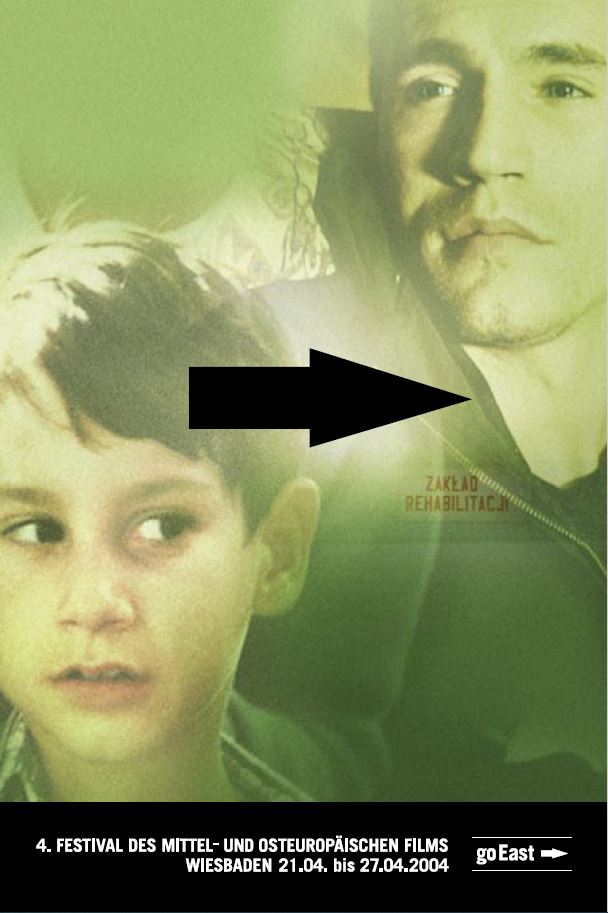
Keywords: festival;catalogue;film;
More...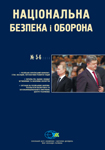
THE RUSSIA-UKRAINE CONFLICT: CURRENT SITUATION,CONSEQUENCES, PROSPECTS // CHAPTER 1. THE CURRENT STATE OF UKRAINE-RUSSIA RELATIONS // CHAPTER 2. INTERNATIONAL ASPECTS OF THE RUSSIA-UKRAINE CONFLICT // CHAPTER 3. PROSPECTS OF UKRAINE-RUSSIA RELATIONS: CONCEPTUAL APPROACHES AND PRACTICAL STEPS // UKRAINIAN AND FOREIGN EXPERTS ON KYIV-MOSCOW RELATIONS // DIPLOMATS ON THE RUSSIA-UKRAINE CONFLICT // RUSSIA-UKRAINE CONFLICT: EXPERT ASSESSMENTS // CHALLENGES AND PERSPECTIVES OF UKRAINE-RUSSIA RELATIONS: PUBLIC OPINION // POLITICS:HOW TO STOP THE WAR? // UKRAINE: AN INEVITABLE CONFRONTATION OR AVOIDABLE CONFLICT? // REFLECTIONS ON THE NEW EASTWEST DISCORD // ECONOMY: DEGRADATION OF THE UKRAINE-RUSSIA ECONOMIC RELATIONS: WHAT IS NEXT? THE CRIMEA ISSU: EREINTEGRATING CRIMEA: METHODOLOGICAL ASPECTS // THE POINT OF NO RETURN
More...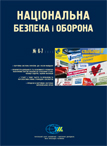
PARTY SYSTEM OF UKRAINE BEFORE AND AFTER MAIDAN: CHANGES, TRENDS, PUBLIC DEMAND // CHAPTER 1. PARTY SYSTEM OF UKRAINE IN 2010-2015: STAGES AND SPECIAL ASPECTS OF EVOLUTION // CHAPTER 2. PARTY SYSTEM AFTER MAIDAN: IMPLICATIONS AND FACTORS // CHAPTER 3. DEVELOPMENT PROSPECTS OF POLITICAL PARTIES: CONTENT OF PUBLIC DEMAND // CHAPTER 4. RECOMMENDATIONS // Main theses of the Ukrainian political parties’ election programmes that have a parliamentary faction // Main theses of the Ukrainian political parties’ election programmes that have gained over 1% of people’s votes // POLITICAL PARTIES IN UKRAINE: CURRENT STATE, DEVELOPMENT AND ENVIRONMENT // POLITICAL PARTIES IN UKRAINE: EXPERT OPINIONS // CURRENT STATE AND PROSPECTS OF DEVELOPMENT OF PARTYSYSTEM IN UKRAINE: EXPERT ASSESSMENTS // POLITICAL PARTIES AND PARTY SYSTEM OF UKRAINE AT PRESENT: PUBLIC OPINION // PARTY SYSTEM OF UKRAINE AT PRESENT: CHALLENGES, PROBLEMS, PUBLIC EXPECTATIONS // Session 1. Development of Ukraine’s party system against the background of modern European trends // Session 2. Current state and development trends of political parties in Ukraine // IN SEARCH OF THE “CORE ELECTORATE”: HOW SHOULD PARTIES REACT TO AN INDIVIDUALISTIC SOCIETY? // PARTY SYSTEMS OF EU MEMBER STATES
More...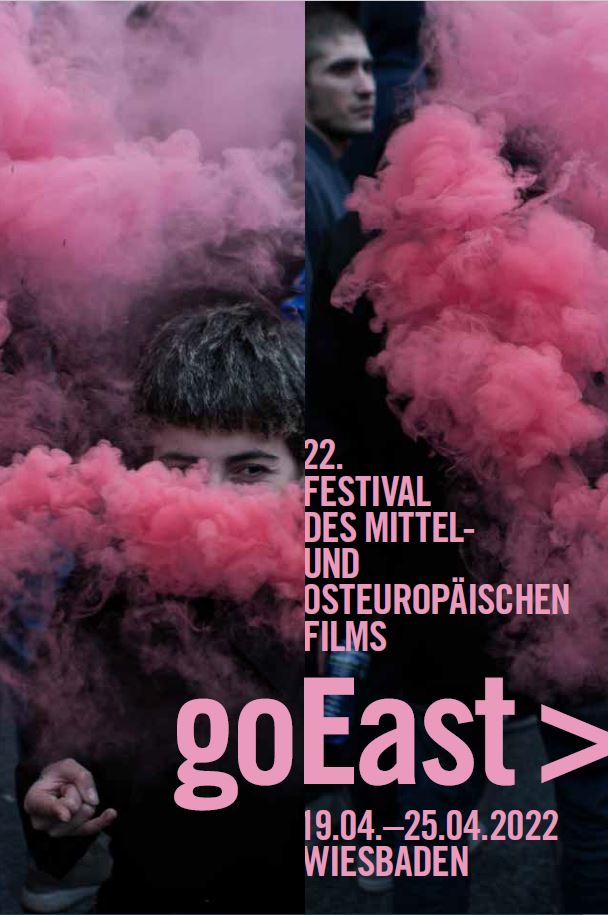
Keywords: festival;film;cinema;catalogue
More...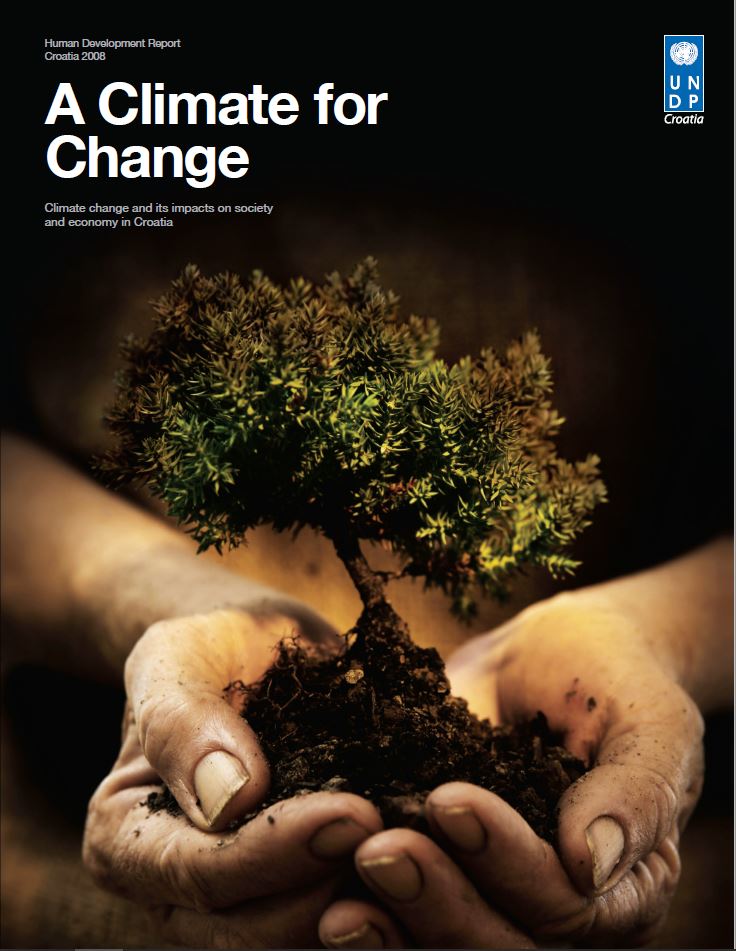
Keywords: Climate Change; Croatian ecology;
Both the Government and citizens are concerned and interested in the climate change issue. The Governmentis already pursuing several strategies to reduce greenhouse gas emissions, thus allowing the Human DevelopmentReport to focus on identifying key gaps and to provide specific recommendations on “climate-proofing”human development strategies. In addition, the Report can help to address public concerns: in a recent survey, 8 out of 10 Croatians felt that climate change was really happening, and of that group, 4 out of 10 thought itworse than experts were saying. // While this Report is not meant to be a comprehensive overview of all aspects of climate change, it does reflectthe breadth and depth of research that has been done in many sectors to date, and it provides a link between aglobal phenomenon and the everyday human development issues facing Croatia. The research and analysis in thisHuman Development Report indicates that, while climate change is likely to pose serious threats to human developmentin Croatia, it also has the potential to bring several beneficial opportunities. The “climate for change” thatcurrently exists in Croatia will provide the country with the motivation it needs to rise to the challenge.
More...